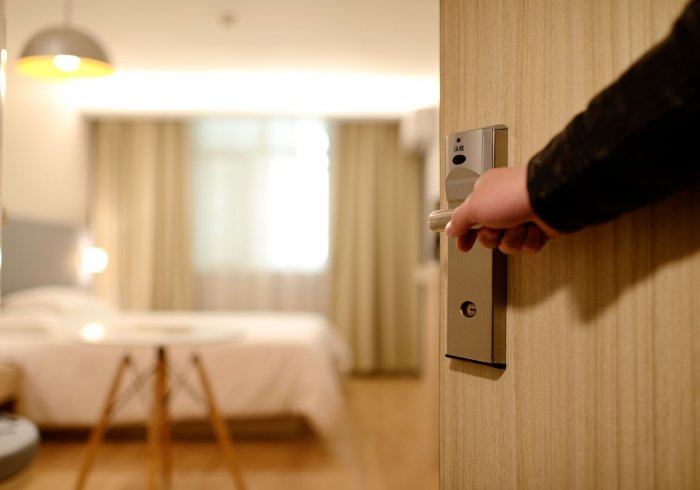Some COVID Restrictions Return

On September 1, Hungary closed its borders to most foreigners in anticipation of what some might consider to be the onset of the second wave of the coronavirus epidemic in the country, as the number of recognized active cases more than doubled in a single week from 885 on August 25 to 1,820 on September 1.
Gergely Gulyás, the head of the Prime Minister’s Office, said the measure marks a return to restrictions in place during the initial wave of COVID-19 infections in the spring and were warranted because of the rising number of new cases.
Exceptions to the entry ban will be made for convoys of soldiers, some business people, some cross-border commuters, transit traffic and diplomats, he said. Hungarians returning from abroad after September 1 will be required to produce two negative COVID-19 tests, 48 hours apart, to be exempted from a mandatory 14-day quarantine.
At a meeting on August 31 in Bled, Slovenia, the Czech Prime Minister Andrej Babis had asked Prime Minister Viktor Orbán to allow Czech nationals into Hungary who had already booked rooms in the country for September, Minister of Foreign Affairs and Trade Peter Szijjártó said on his Facebook page.
An agreement was reached allowing Czech citizens with a recent negative COVID-19 test entry into Hungary and, after further negotiations, the “Czech example” was also applied to the other Visegrad Group members, Poland and Slovakia, he added. A decree issued by Szijjártó published in the latest issue of the official gazette Magyar Közlöny will also allow commuters from Croatia, Slovenia, Austria, Slovakia, Ukraine, Romania and Serbia to enter Hungary for periods of up to 24 hours as long as they remain within 30 kilometers of the border.
Domestic firms centered around travel and tourism, already compromised by the effects of the coronavirus so far this year, have had to make several adjustments according to this recent development.
The Hungarian National Chamber of Hunting has petitioned for a similar travel ban exemption for visiting foreign hunters, because they do not visit popular places frequented by tourism, but travel to the sparsely populated countryside, coming into contact with a minimal number of people there, the chamber argues, adding that it the sector makes much of its money at this time of year.
Hungarian low-fare airline Wizz Air said its operational capacity is likely to be lower than anticipated in the third quarter of its business year because of renewed travel restrictions, emphasizing that the persistent mobility restrictions across the network are likely to keep capacity at around 60% in October-December, as opposed to the 80% it had previously anticipated.
In other travel-related news, MÁV-Start said it would reimburse the price of any international tickets for September without handling costs, regardless of the destination country, if the passenger chooses to cancel the trip. The news came after the state-owned rail company announced it was removing sleeping and dining cars from its international routes, effective September 1.
Recently launched Czech Railway company RegioJet will be suspending its operations in Hungary for September, Continental Railway Solution Kft., who licenses the firm in Hungary, told economic daily Világgazdaság (Global Economy).
Though hit hard by the fall in foreign traffic, tourism was still boosted by domestic travelers, especially when it came to rural accommodation, the vice-president of the National Association of Rural and Agrotourism, Géza Szabó, told conservative daily Magyar Nemzet (Hungarian Nation) .
Accordingly, Zoltán Guller, head of the Hungarian Tourism Agency (MTÜ), told Magyar Nemzet that the country’s tourism industry needs to focus on domestic travelers, saying that “business policy for the commercial accommodations sector, catering and event organizers needs to be tailored to a new, domestic-centered tourism.”
He said the country’s tourism industry could be supported by domestic travelers choosing to vacation in-country, adding that a record 1.2 million Hungarians stayed in local commercial accommodations in July.
MTÜ intends to continue this approach in light of the renewed travel restrictions, launching a nationwide tourism stimulus campaign from September 9, where participating service providers will have special offers available until October 15.
SUPPORT THE BUDAPEST BUSINESS JOURNAL
Producing journalism that is worthy of the name is a costly business. For 27 years, the publishers, editors and reporters of the Budapest Business Journal have striven to bring you business news that works, information that you can trust, that is factual, accurate and presented without fear or favor.
Newspaper organizations across the globe have struggled to find a business model that allows them to continue to excel, without compromising their ability to perform. Most recently, some have experimented with the idea of involving their most important stakeholders, their readers.
We would like to offer that same opportunity to our readers. We would like to invite you to help us deliver the quality business journalism you require. Hit our Support the BBJ button and you can choose the how much and how often you send us your contributions.









